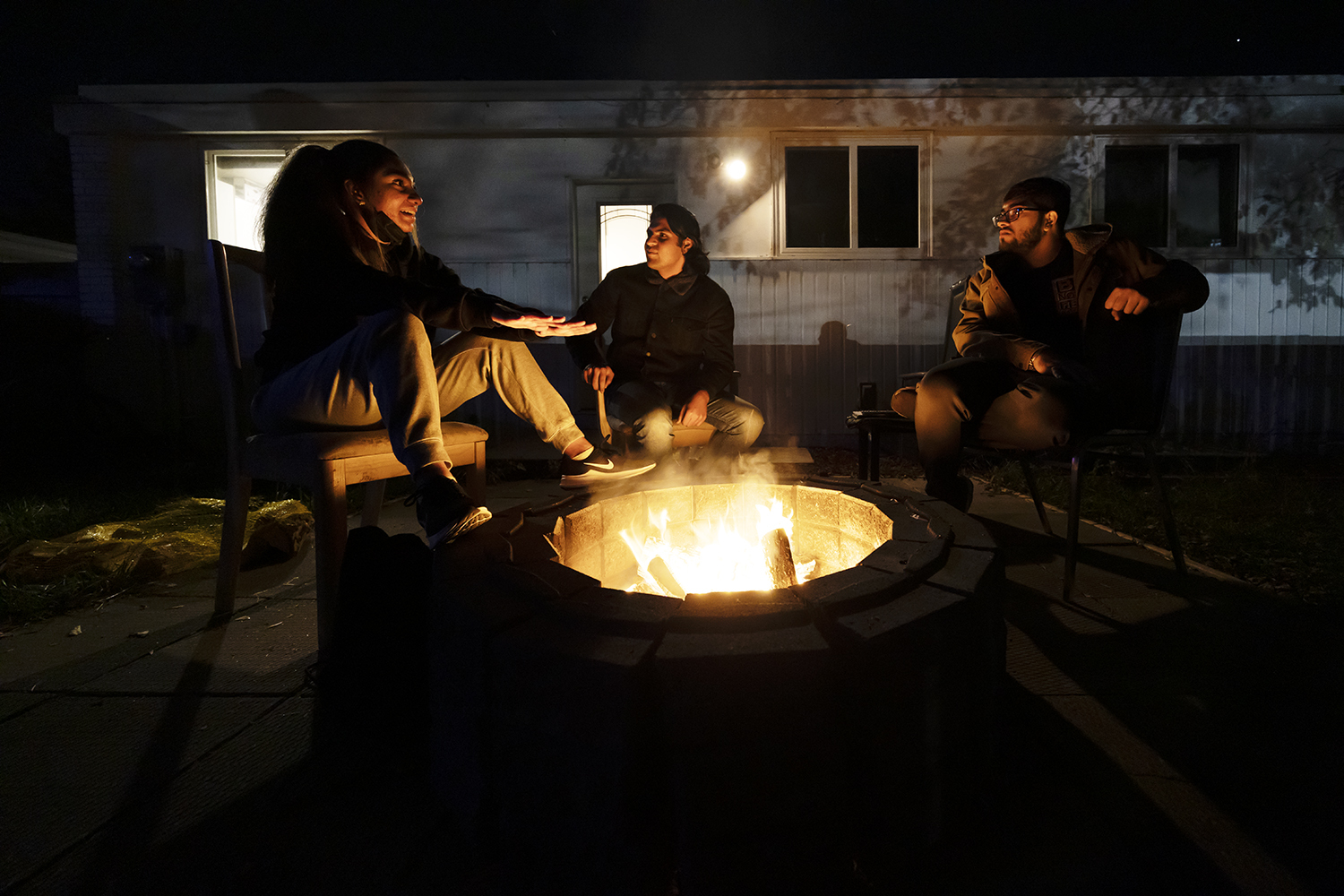November 27, 2021
Muhommad Arqam Naveed sits crouched over a wooden chest that doubles as a study desk in his northwest Winnipeg apartment.
The emptiness of the 20-year-old student's bedroom is stark. He has just three pieces of furniture: a collapsible camping chair, a folding chair for his desk and a mattress for sleeping that lies directly on the floor.
As is true for many international students, adjusting to life in a new country while keeping up with schoolwork is a challenge for Naveed, who arrived in Winnipeg from Pakistan in September.
"I have a big family back home and my two-year-old niece, Amal, is always jumping and playing around, bringing smiles and happiness," said Naveed, who is now studying biology at the University of Winnipeg.
"Now to be on our own is challenging. Managing studies alongside daily life chores such as washing clothes [and] cooking is a task in itself without family support," he said.
Loneliness, homesickness, housing and transportation challenges are nothing new to international students, but the COVID-19 pandemic has only escalated the feeling of isolation.
![Muhommad Arqam Naveed wore traditional dress for his visit to his mosque and asked a friend to take some pictures to share with his family back home in Pakistan. 'I have very few friends [in Winnipeg] and it makes me feel homesick,' he says. (Prabhjot Singh Lotey/CBC)](https://newsinteractives.cbc.ca/craft-assets/images/Foreign-Student-Akram-2-1500.jpg)
"Overall I don't feel good here and prefer to stay at home," he said.
"I have very few friends and it makes me feel homesick."
Cramped conditions, long days
Housing and managing money are among the first challenges facing students who are new to Canada.
"I am finding it difficult to manage my expenses and pay the rent as I only [can find] work for 10 to 12 hours [a week]," Naveed said.
Finding a roommate to split the cost of rent is important for him. But finding someone to live with who shares his faith as a Muslim isn't easy, he said.
Transportation is a challenge too.
"Initially there were a lot of issues with the transit system, as I could not find out the routes sometimes and there was a lack of information," said Naveed.
As well, many students who are new to Canada aren't fully aware of their rights and privileges and still think of themselves as outsiders in their new residence.
Yashas Samtani, who came to Canada from India to study last summer, says not everyone a student meets will have their best interest at heart.
"My former landlord tried to take advantage of me by imposing arbitrary restrictions and taking away my security deposit," said Samtani, who is studying economics at the U of M.
He's taking legal action against his previous landlord for the return of his deposit.
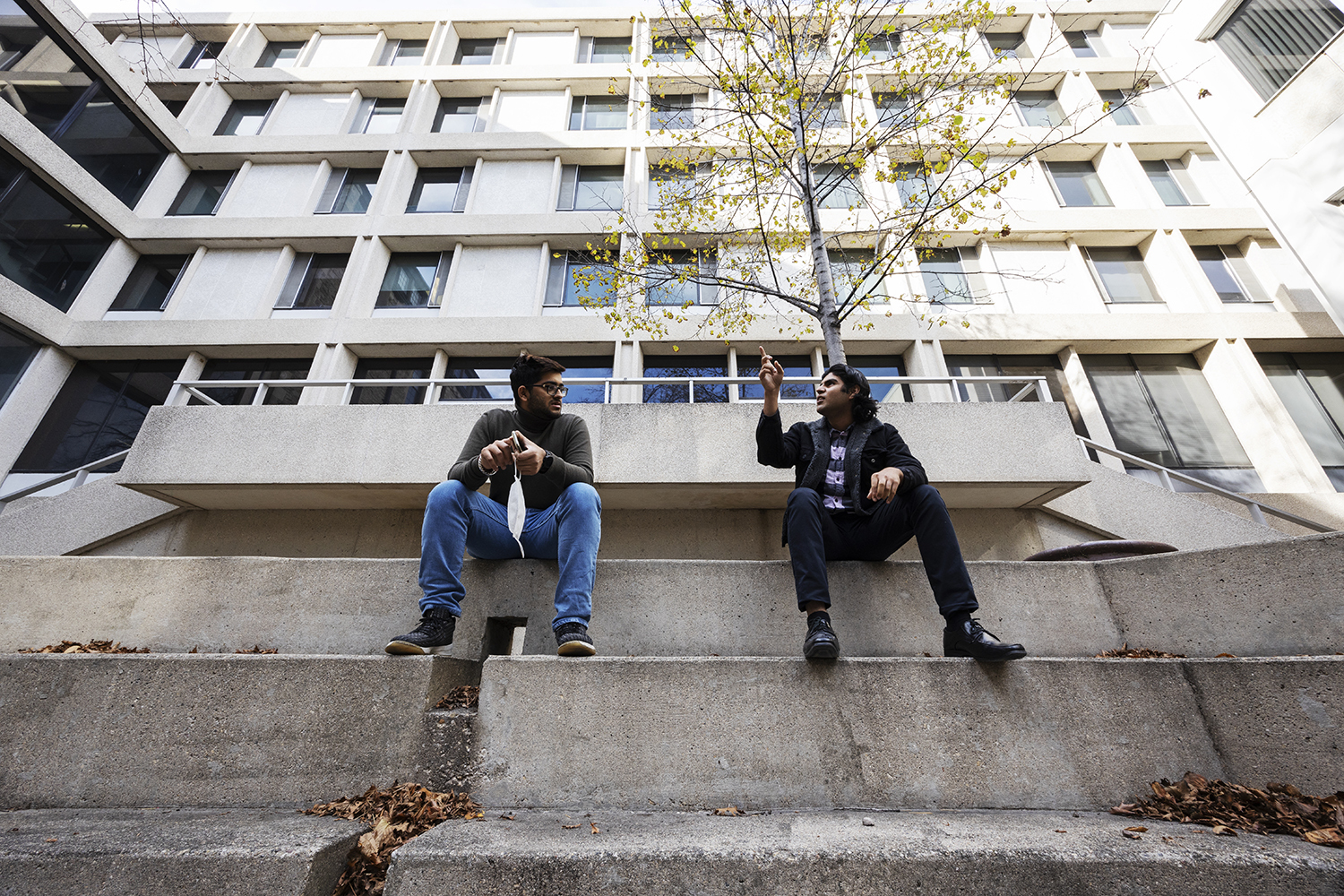
Samtani now lives with Ish Khattar, another student who came from India this summer, in a home close to the University of Manitoba's Fort Garry campus.
The living conditions are cramped in their 1,700-square-foot bungalow. There are six bedrooms, each shared between two students.
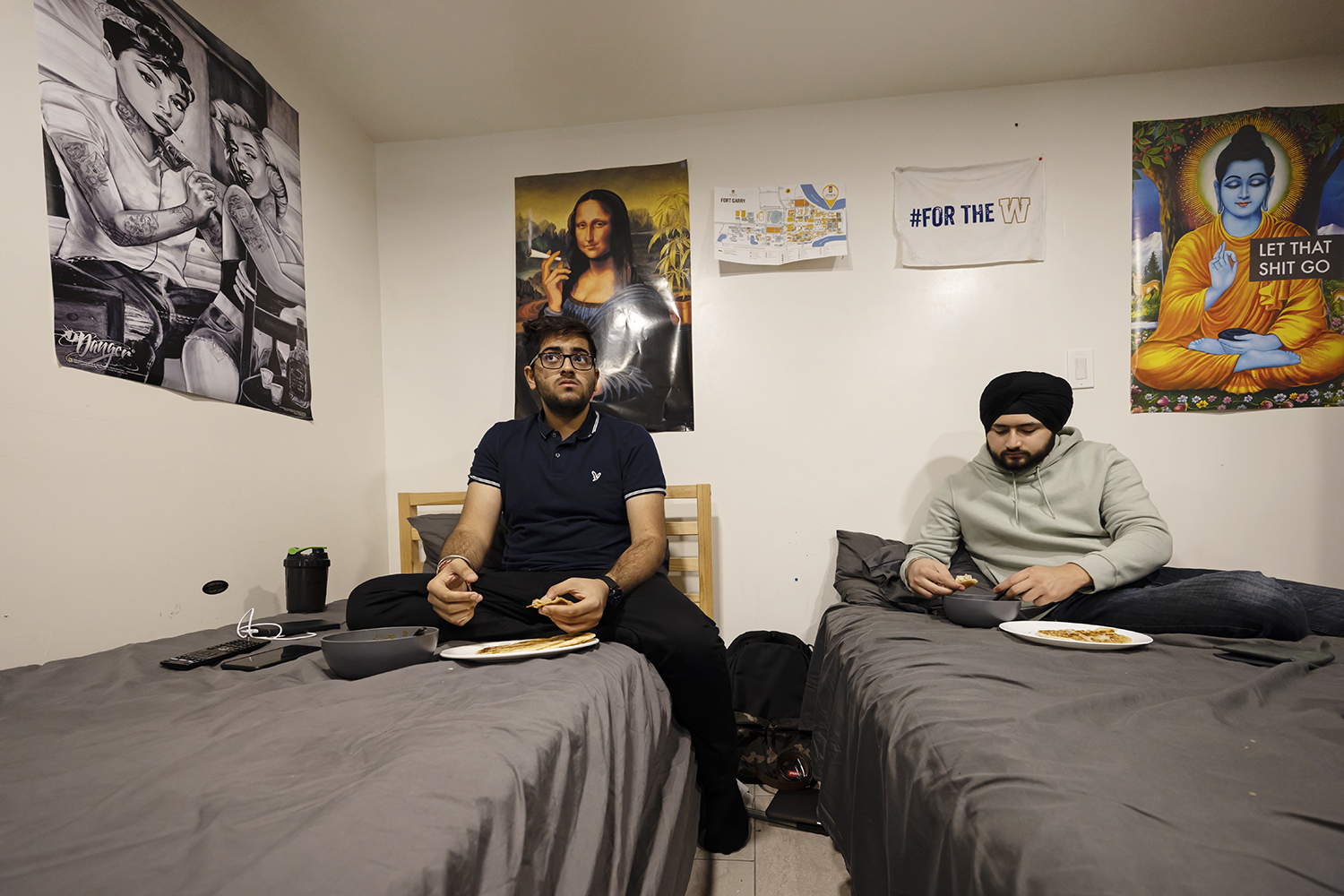
Even something as simple as trying to arrange for a cellphone in Canada to communicate locally presents a challenge.
"You need a good [credit] score and students without any support here, any family or friends, are in a very confused situation," said Khattar.
"I had to get my cousin in Toronto to get me a SIM card under his name."
On top of those challenges are the demands of long days studying, and often working a paying job as well.
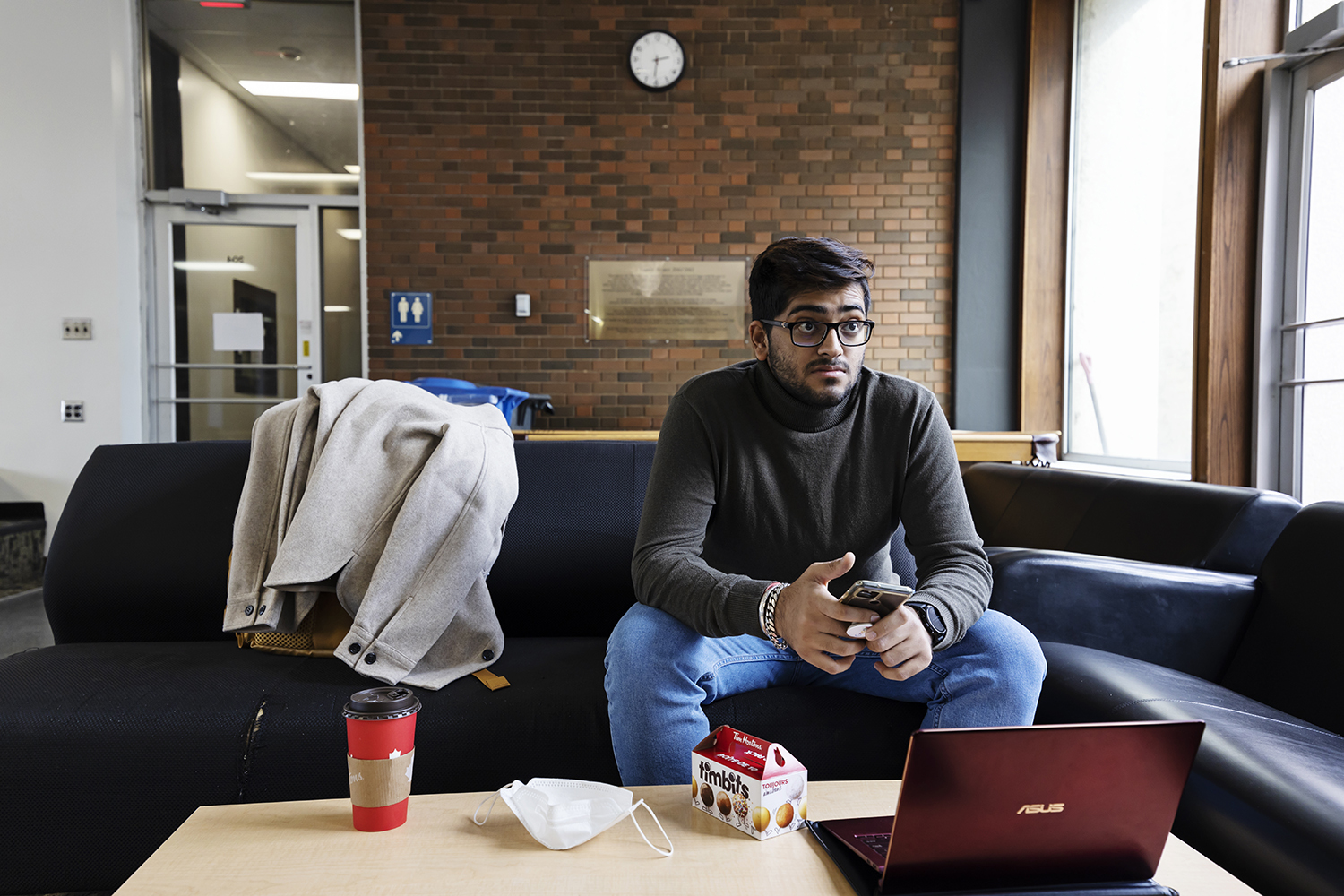
The long journey to Canada
The challenges for international students, though, begin with simply getting to Canada.
Many foreign students who were already accepted to Canadian universities and planned to study here were left with no choice but to start classes online from their home country due to the pandemic.
That includes Samtani and Khattar.
Before Khattar arrived in Canada, he took courses online from his home in India — which meant he not only had to juggle schoolwork with work at his family's business, but also had to deal with time zone differences.
"My day started at three in the afternoon and afterwards I would go and help my dad [with] the business," said Khattar, who is studying computer science at the University of Manitoba.
His classes would start late in the evening and after homework was complete, he wouldn’t get to sleep until 8 a.m.
"It was fun initially, but after some time sleep deprivation started taking its toll and it became really difficult," he said.
After a year of online study, both Khattar and Samtani came to Winnipeg in the dog days of summer for their second year. Both were slated to come earlier, but their student permits were delayed due to the pandemic.
There were multiple flights and numerous COVID-19 screening tests through various countries before they could enter Canada.
"It took me four flights and three days to reach Winnipeg from New Delhi," Khattar said.
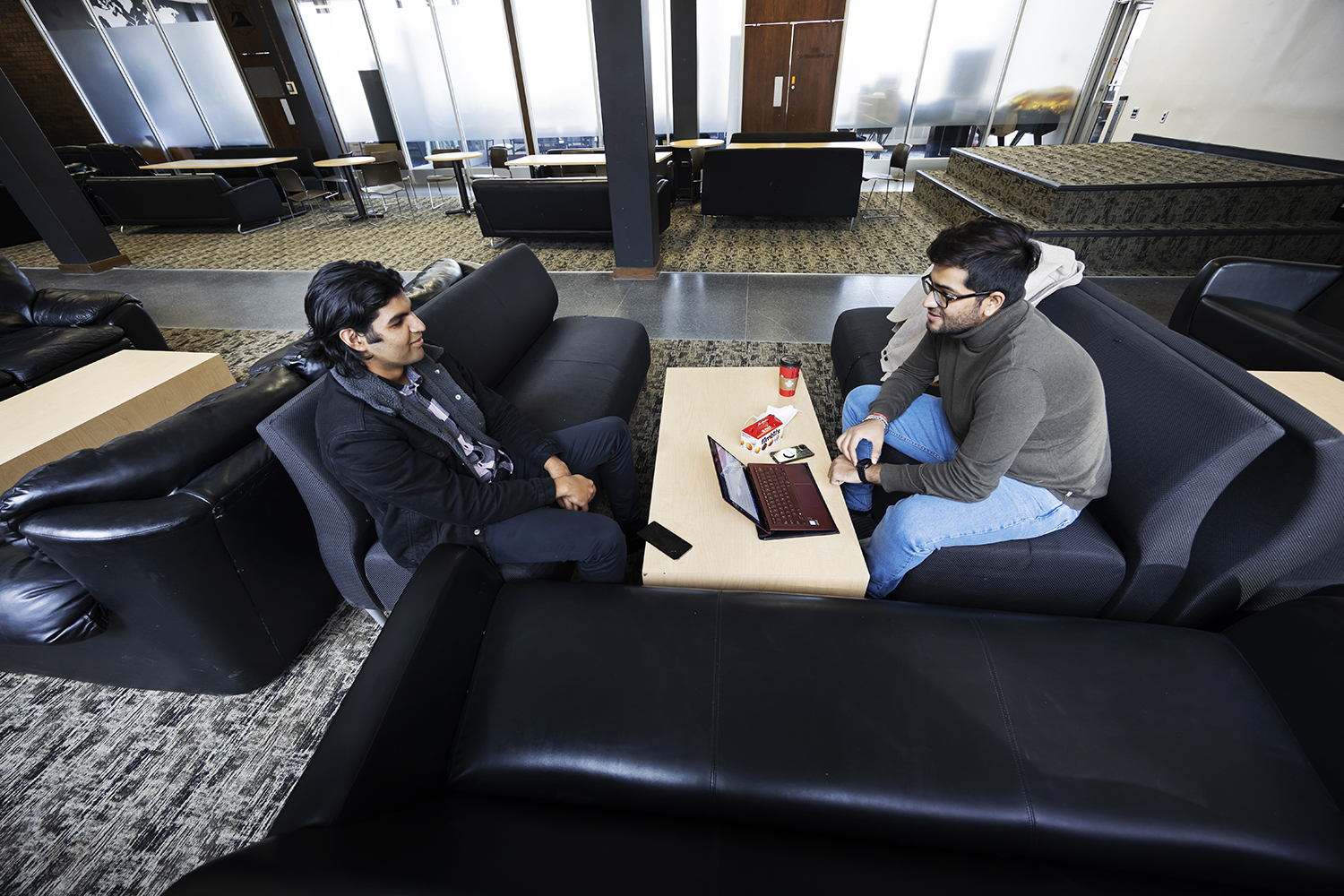
PCR testing for COVID-19 and the costs associated are not reimbursed by provincial or federal governments. In some cases, international students might need multiple tests before their arrival.
Khattar got tested for COVID-19 several times — "twice in India, as I didn't want to take a chance and got tested from two different labs, and then in Dubai and [in] Amsterdam," he said.
Just the journey to get to Canada cost him $2,500.
On his second day in Winnipeg, when he went out to eat, he discovered the documents he had weren't acceptable as proof of vaccination — required to eat in a restaurant in Manitoba.
"No one told us at the airport or anywhere on the website that we need to get a vaccination QR code," he said.
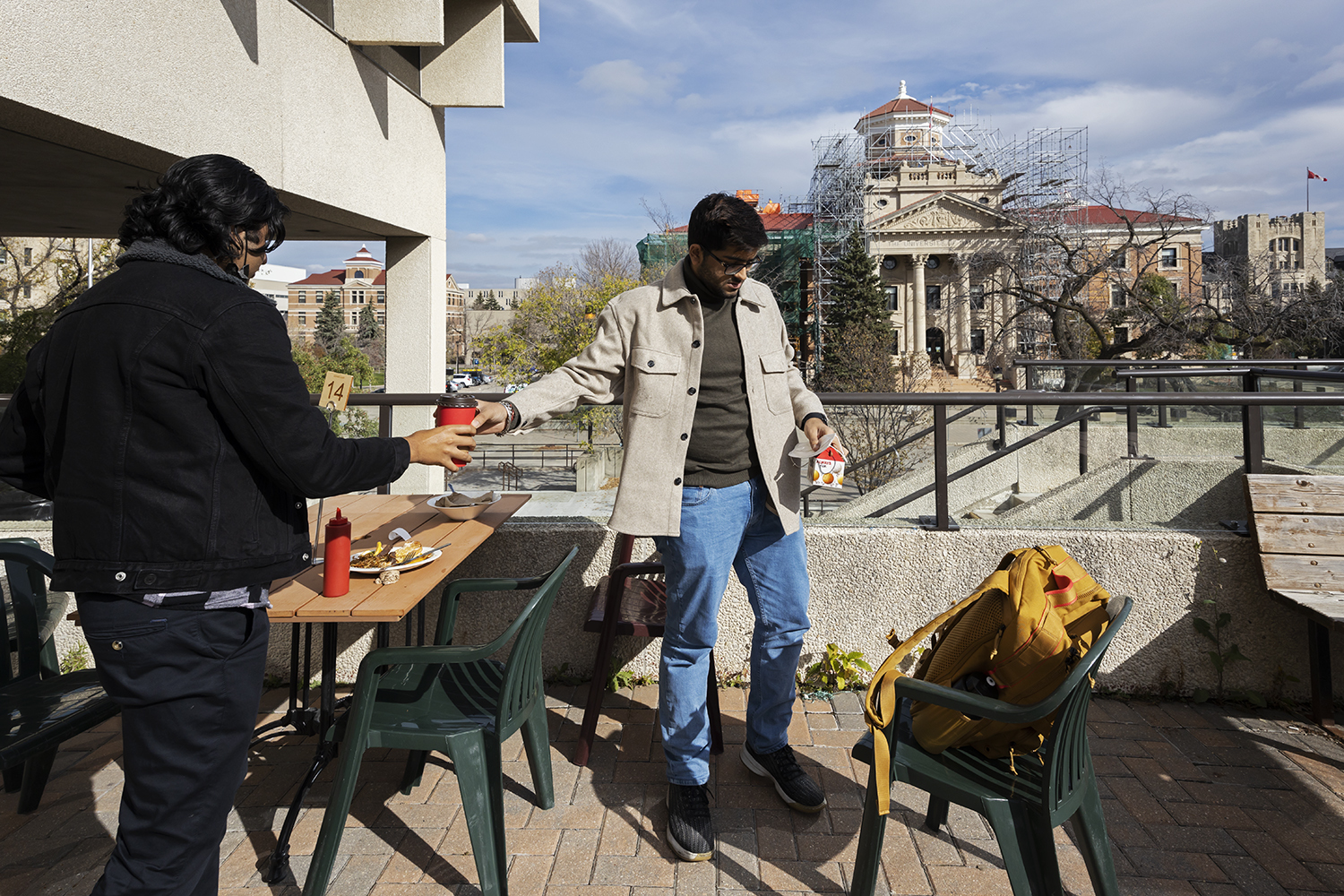
Samtani arrived in August, when there was still uncertainty about how immunization cards held by international students would be validated.
"The entire fiasco of international students getting their immunization cards was going on," he said.
"They made the system so crude and rudimentary that it was almost impossible for international students to get the QR code, [and] even after they put something in place students had to wait on the phone for three to four hours," he said.
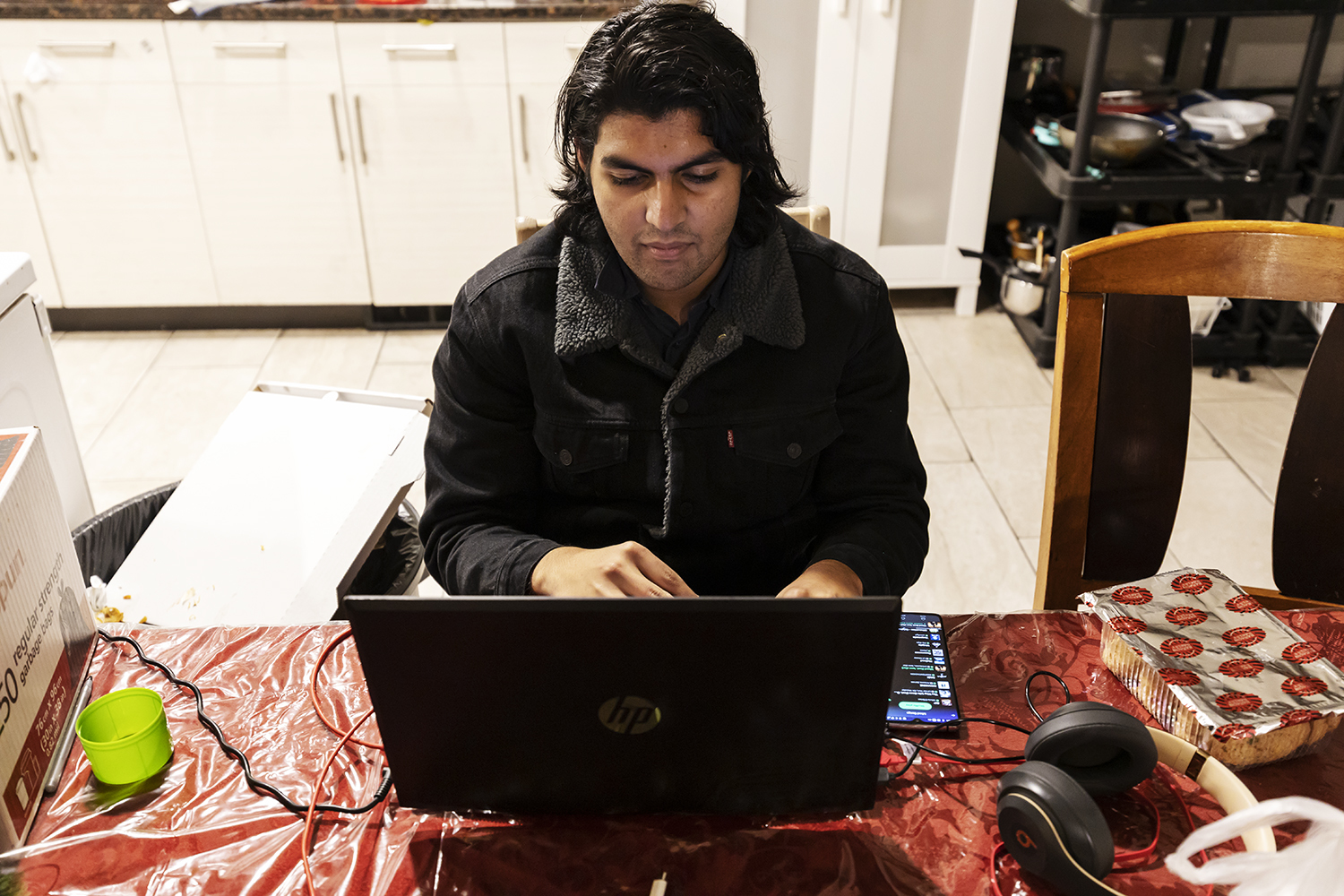
For Samtani, getting to Canada meant travelling through Qatar in the Middle East, where he stayed for three days.
When leaving the Mumbai airport and flying to Doha, the capital city of Qatar, he was interrogated by an immigration official who was suspicious about the fact he had a return ticket to India from Doha.
"My parents [are] travel agents. We booked a return ticket from Doha just in case anything went wrong," Samtani said.
Because he was travelling as a student and didn’t intend to return home from Doha, the immigration official accused him of committing fraud and said the police would be called.
"At that moment, I was very shocked," said Samtani.
"I was almost in tears because now I [was] being threatened with jail time on completely arbitrary grounds. Like, I've done nothing wrong," he said.
Many international students going through Doha were interrogated by immigration officials who were trying to figure out precisely what their circumstances were, Samtani said.
In the end, his story checked out and he was allowed to leave the country.
Expensive education means vital revenue for schools
An education in Canada doesn't come cheap for international students.
"My first year education in Canada costs up to 4.5 million Pakistani rupees," said Naveed. That's more than $32,000 Cdn.
"To put that in perspective, that's enough money to start a business or live a lavish lifestyle back home in Pakistan," he said
Canadian universities, meanwhile, rely heavily on international student enrolment for revenue.
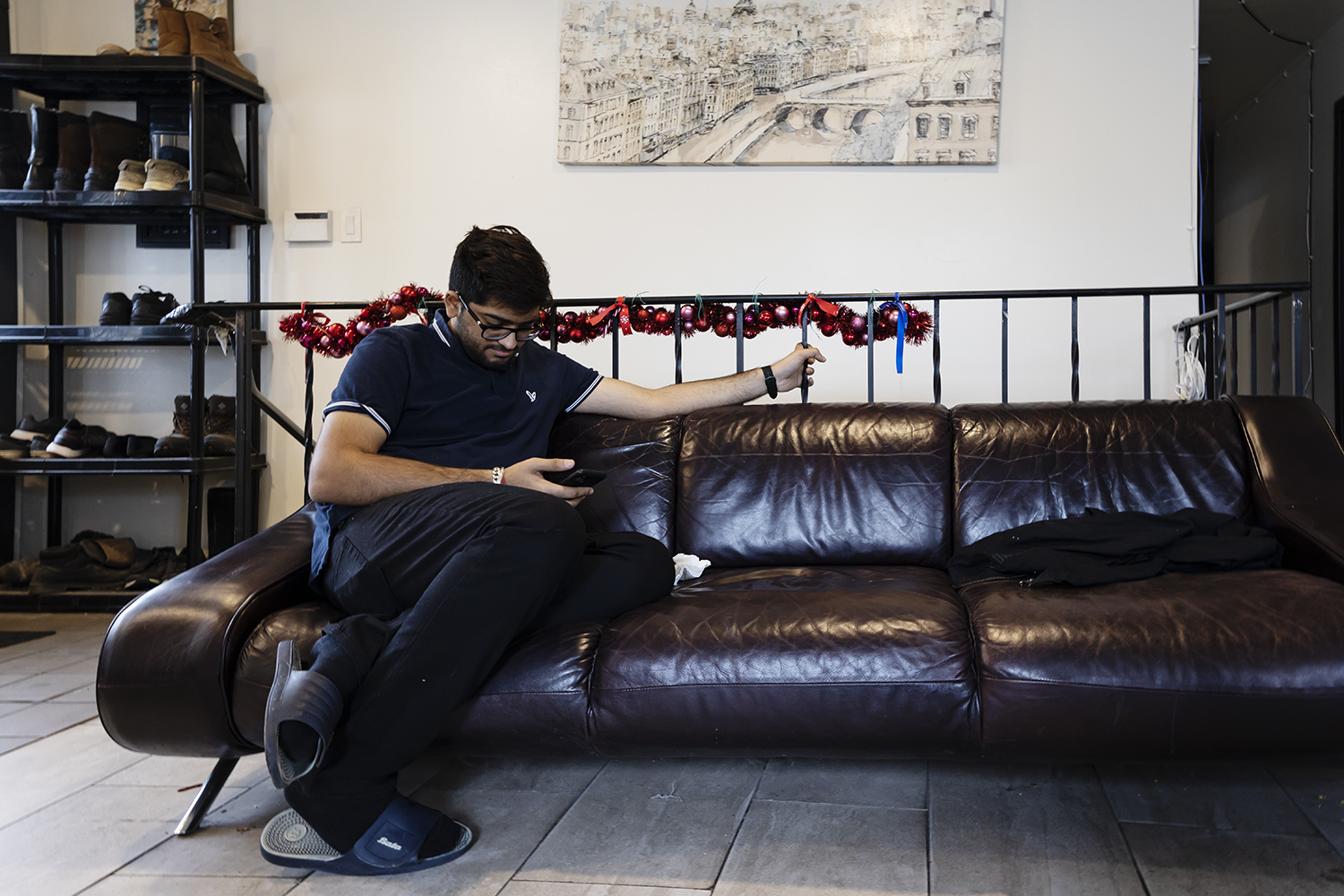
Tuition fees paid by international students are three to four times higher than those of domestic students, and students from abroad make up a growing segment of Canada's post-secondary student population.
Over the decade before the pandemic, domestic student enrolment in Canada grew by just under 11 per cent, according to Statistics Canada, going from an enrolment of about 1.49 million in the 2008-09 school year to around 1.65 million in 2018-19.
During the same period, though, the number of international students more than tripled — from 101,304 in 2008-09 to 318,153 by 2018-19.
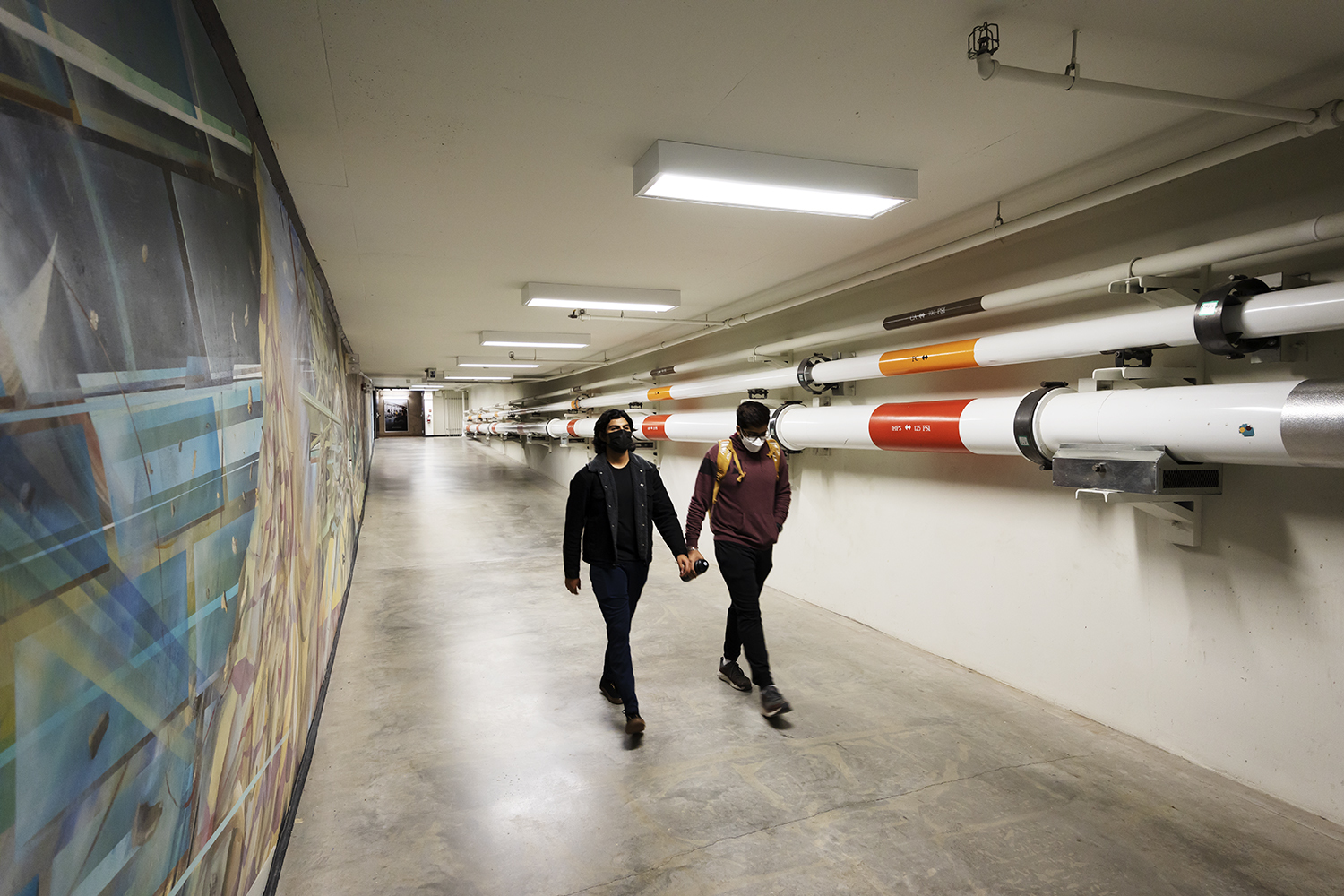
The COVID-19 pandemic may have a major impact on that growth, though — and on revenue for universities.
A Statistics Canada study that looked at the potential economic impact of the pandemic on universities found that under one of its worst-case scenarios — stable domestic student enrolment but a 42 per cent drop in international students — Canadian universities would lose more $2.4 billion in the 2020-21 school year.
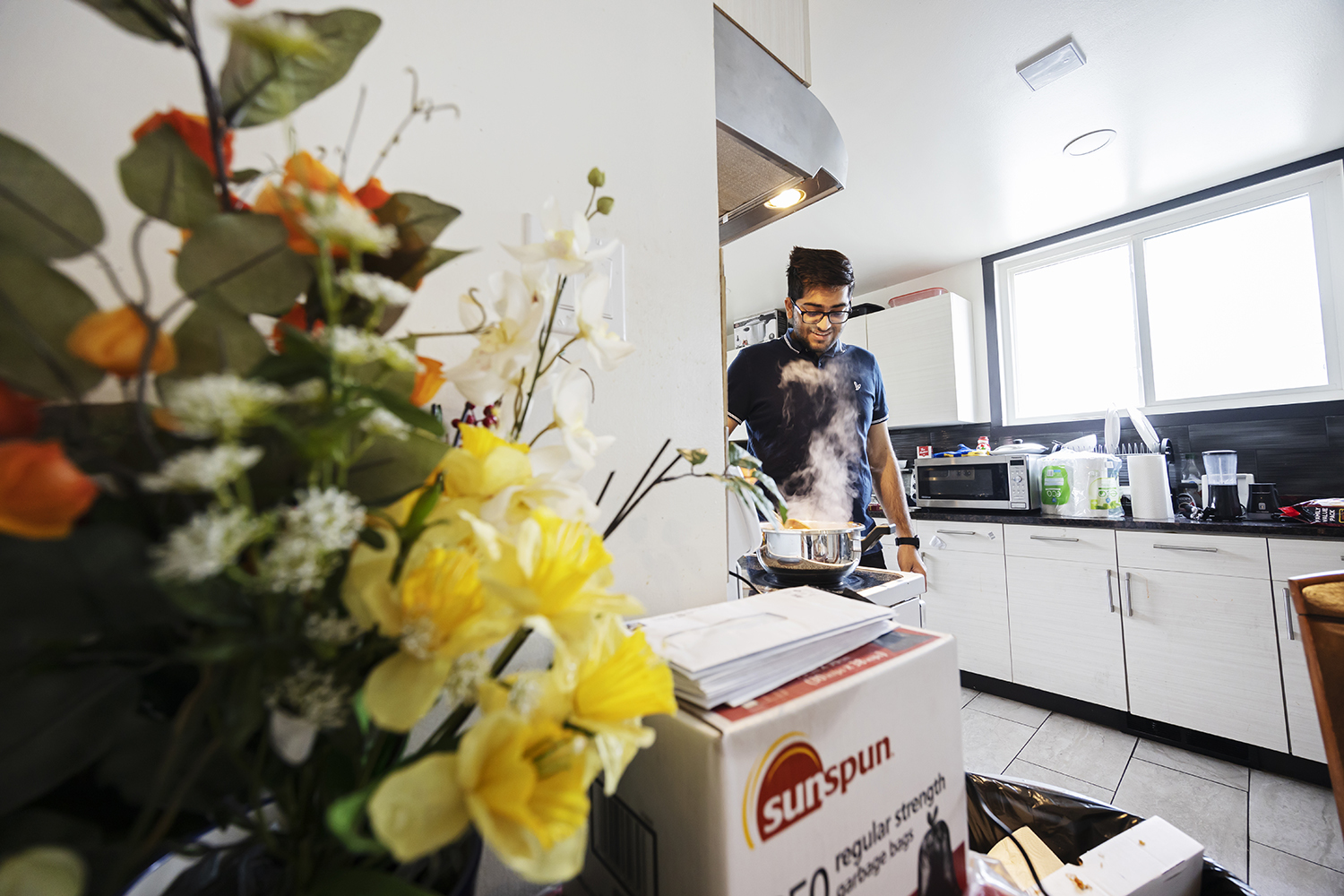
Finding ways to cope
In spite of all the challenges they face, the international students all say they've found some ways to help them adjust and cope.
Samtani's inclination toward student politics has helped him integrate into student life in Manitoba and gives him a chance to meet other students.
He's part of the faculty of arts student council and is the chairperson for the University of Manitoba Students' Union board of directors.
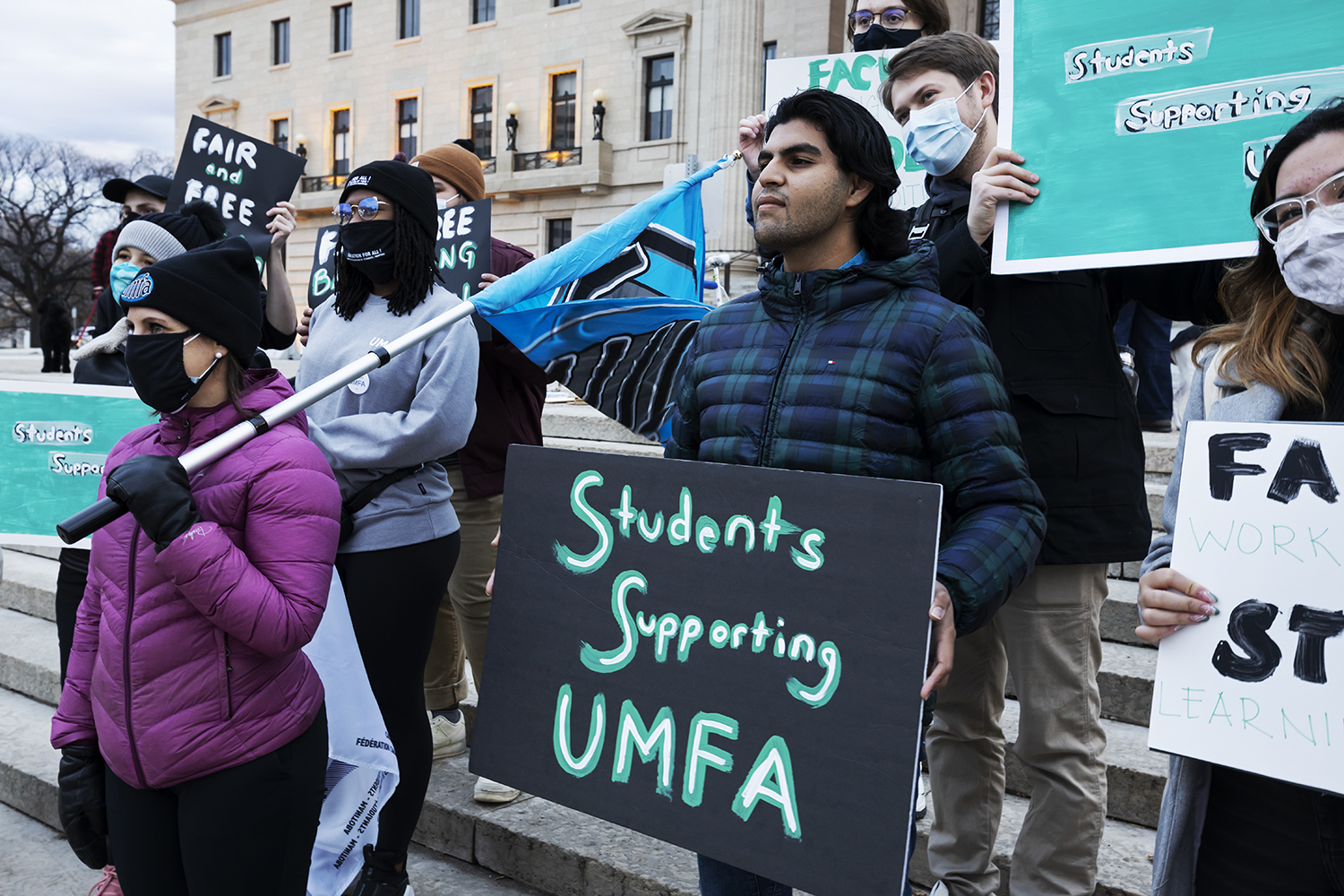
"I get to witness and preside over ... every single piece of legislation that passes through student politics," he said.
Samtani organized and attended an Oct. 29 protest in support of striking University of Manitoba faculty members who were seeking a reversal of a wage restraint mandate by the provincial government.
"I chaired a meeting … [and] passed a resolution in the board of directors meeting, saying that the student union should side with the faculty association," said Samtani.
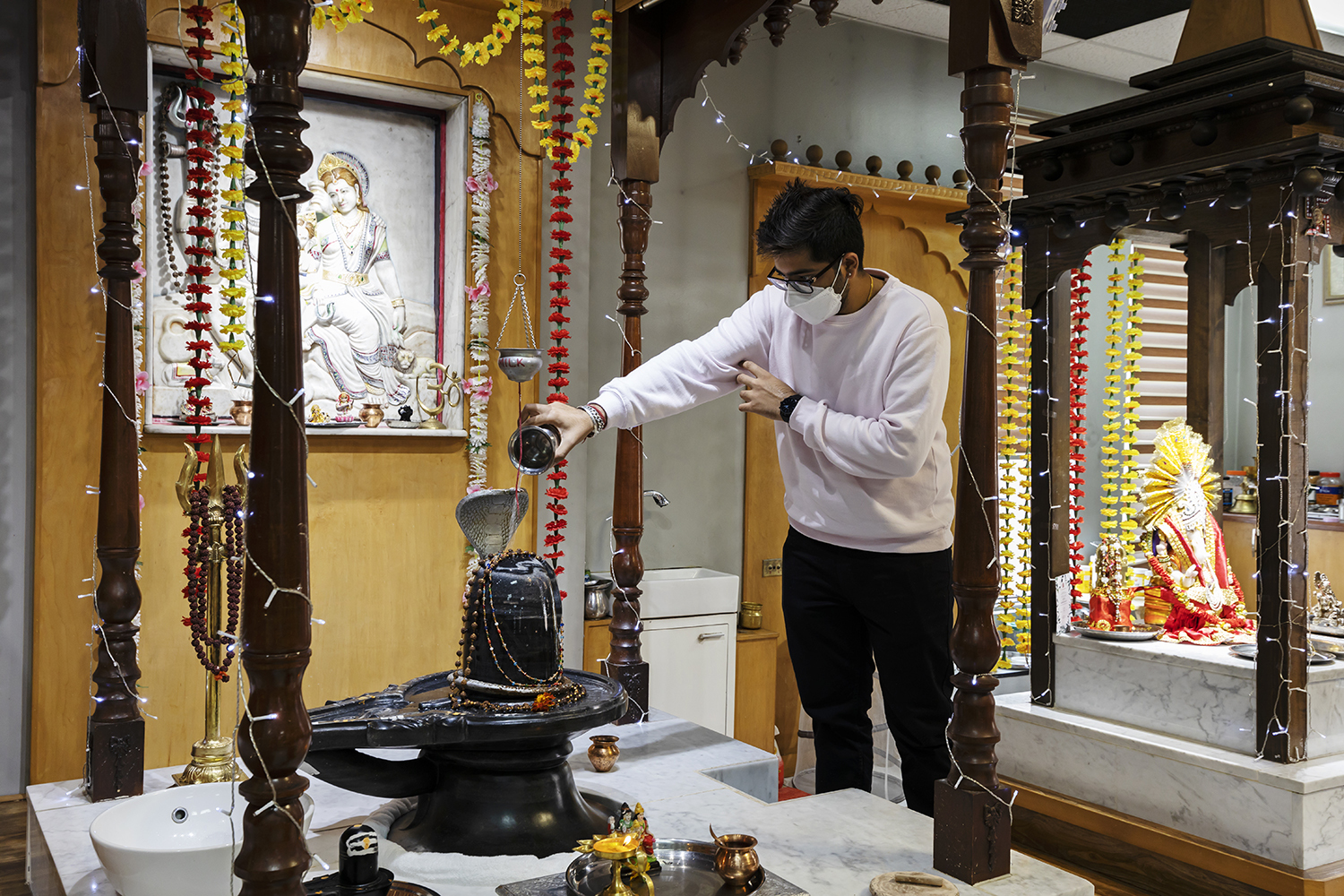
Naveed and Khattar, meanwhile, get strength and comfort from strong cultural and religious values. Both of them regularly pray and visit places of worship.
"My family back in India is really religious, and whenever I pray it feels [like] I am closer to family," said Khattar, who visits the Hindu Society of Manitoba temple every weekend.
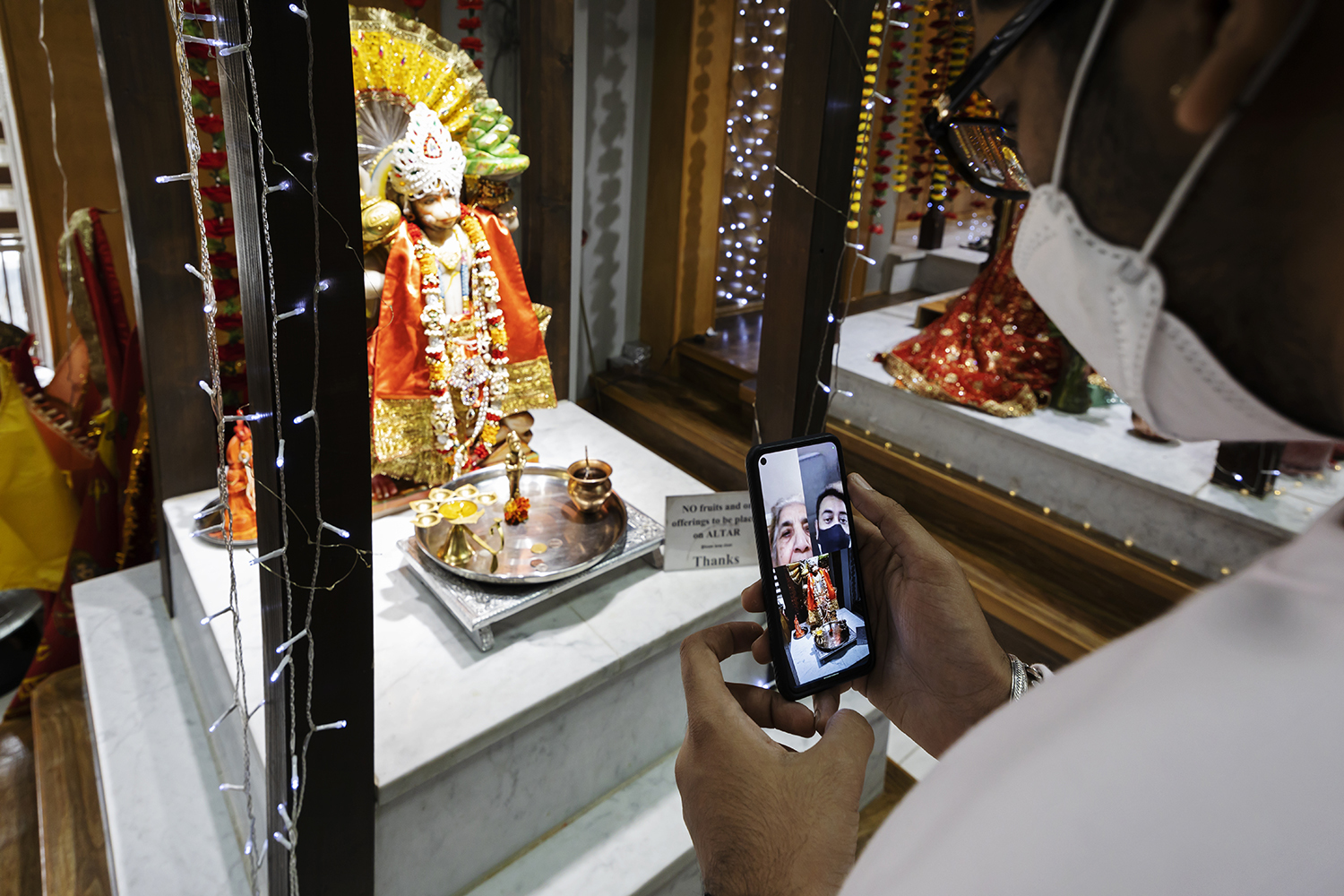
"My mother is very religious and on her birthday, I started doing paath [the recitation of spiritual text]," he said.
"It made my mother happy and that means a lot to me."
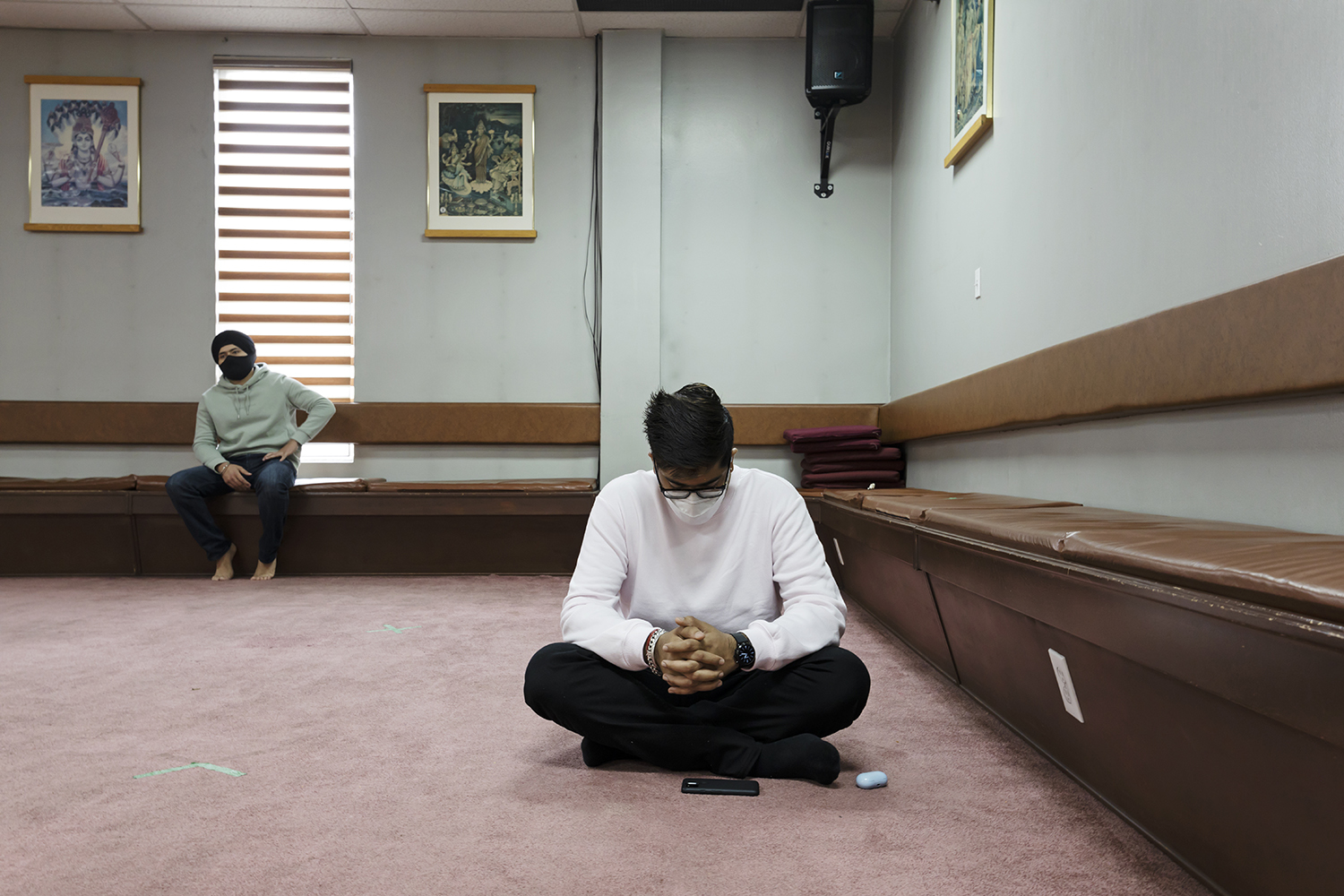
Meditation is also an integral part of his daily routine.
"Meditation helps me stay positive and in tough times it gives me the reassurance that someone is looking after me. I feel safe."
Naveed performs his prayers at the Manitoba Dawah Centre, a mosque in downtown Winnipeg, which he visits once a week. It is one of the few places where he socializes with other newcomers in the city.
He said he still struggles with loneliness and is isolated much of the time in his apartment.
"I talk to my family often on video calls, and when it's not possible due to the time zone differences, I play video games, listen to music and pray,'' Naveed said.
"That makes me feel not lonely."
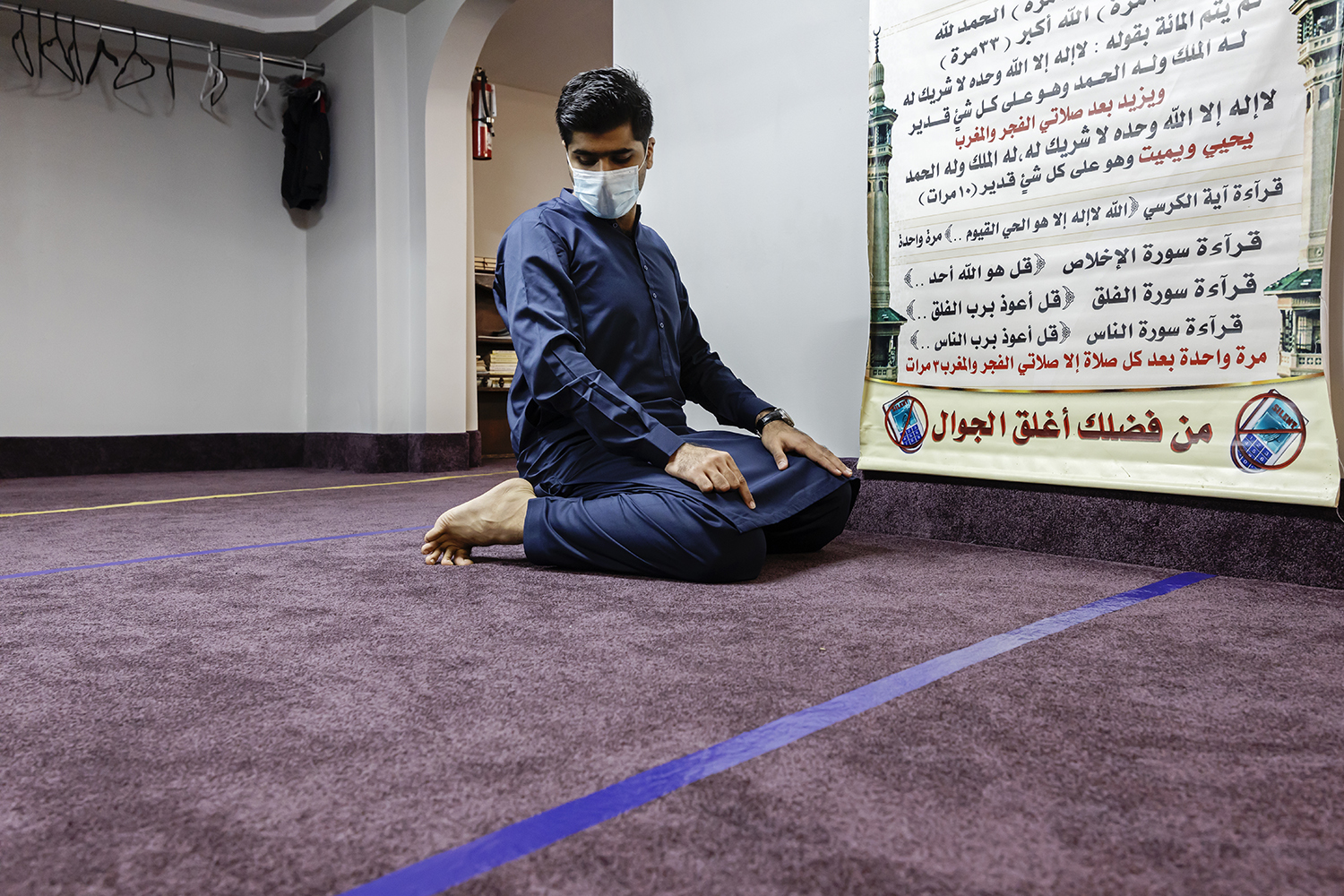
For Samtani, there's student politics. He also has other interests that keep him occupied and distracted from the feelings of loneliness that creep in.
"I'm an avid writer [and] I like reading. I play some Ping-Pong here and there, and I like chess," he said.
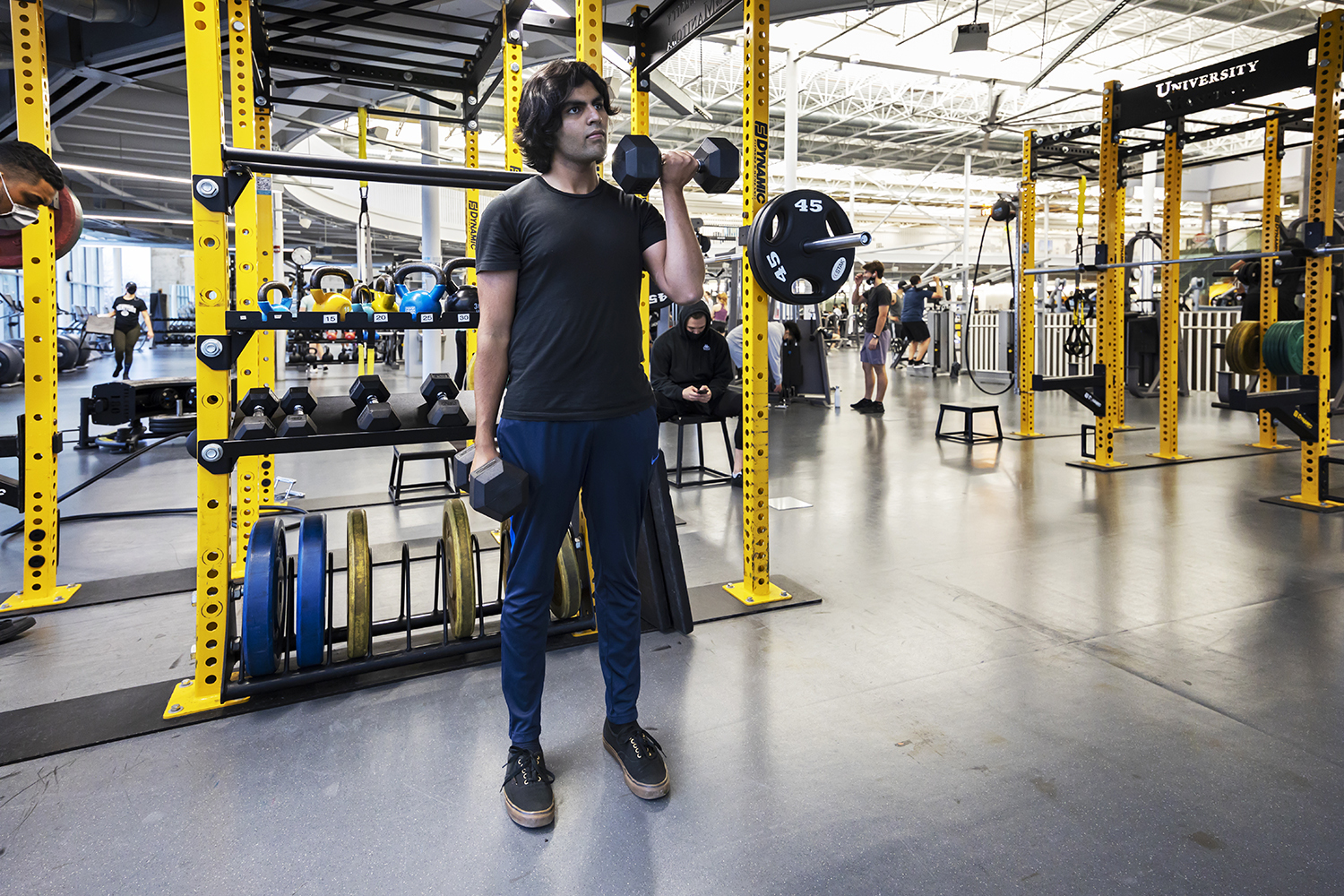
He and Khattar knew each other before landing in Winnipeg and now have a close friendship.
"Ish is one of my best friends and we're always there to help each other out," said Samtani.
"Being with folks from back home really helps and makes me feel less homesick, since it feels like I'd be with the same sort of friends back home too."
